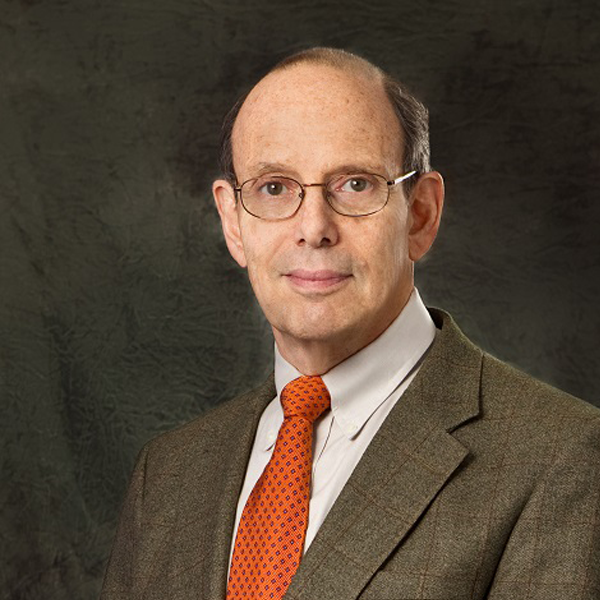Takeaway
Making time to mentor a high school student can be refreshing and rejuvenating for all clinicians.

Passion in the Medical Profession | March 2, 2018 | 4 min read
By Ivor Berkowitz, MBBCh, MBA, Johns Hopkins Medicine
I remember the call from the Pediatric Intensive Care (PICU) fellow: “Come urgently!”
A one-day-old infant with meconium aspiration and severe respiratory failure had just been transferred from the Neonatal ICU to the PICU where I was the attending Pediatric Intensivist. The PICU was the only site where ECMO, a relatively new and innovative lifesaving therapy of long term extracorporeal life support could be offered to babies dying of profound cardiorespiratory failure. The baby was cyanotic, the clinical condition dire.
“Let’s get on ECMO!”
The ECMO team hurried to assemble the equipment and the surgeon rushed in. The baby was “cannulated” and placed on ECMO. For me, there was not a more thrilling sight than after the last sutures had been tied and the surgical drapes had been removed, to behold a now beautiful pink, well oxygenated and hemodynamically stable baby, when just 45 minutes before, a moribund blue gray baby was struggling for life.
These events all took place many years ago. Yet I remember them clearly.
16 years later
The first hint of the Christmas season is the email invitation from the ECMO Team Coordinator to attend the ECMO Graduate’s Christmas Party. This is a highlight of the year for our PICU staff, a time filled with old memories, reminiscences, stories, hugs, tears, thanks and appreciation, but also of sadness for the children who did not survive.
At the party three years ago, I was approached by a teenager and her two parents. They introduced themselves and I recognized the name–the ECMO baby from 16 years ago. We hugged, shook hands and reminisced about those anxiety-filled days. My former patient had become a straight-A high school sophomore, with a mind set on a career in medicine–to be a Pediatric Anesthesiologist, no less.
The joy of mentoring
One week later, this young lady was in my office to discuss how I might be able to help her with a project for her upcoming STEM course in her junior year. I offered to supervise her with a clinical review project. Although she had been the fortunate beneficiary of ECMO therapy, she wondered whether ECMO was indeed a proven therapy for neonates, children and adults with respiratory failure. This became her project for the next nine months.
Although my student was smart, motivated, enthusiastic, and had studied physics, chemistry and calculus, she had not had any exposure to biology. How would she begin to understand and interpret the medical literature regarding ECMO without understanding cardiac and respiratory physiology and blood flow, pulmonary hypertension, the transitional circulation of the newborn and basic biostatistics? Our weekly one-on-one sessions would just have to make up these deficits!
These two-hour sessions started off with 45 minutes of didactics using a high school biology textbook and sections from medical texts. I loved teaching this bright and motivated student as she slowly mastered the work and finally wrote a beautiful paper as her deliverable.
For me, and I think for her, the best part of our afternoons together was when we changed into scrubs and went to the PICU to observe patients on ECMO and other critically ill children. We talked about many general medical issues that are of importance and interest to me and that I thought would pique her interest too, the impact of critical illness on the family and ethical challenges in modern medicine. We reviewed many of the medical illnesses that bring children to the PICU. We went to the ORs and she observed my anesthesia colleagues in action and watched how surgeons work. I think that what she found most interesting was seeing the collaborative manner in which modern critical care and hospital medicine plays out, how physicians interact with their colleagues and other medical staff, their patients and their families.
I was saddened as our time together came to an end. I had so enjoyed teaching and nurturing this young, enthusiastic woman in an area of medicine that I love and that has sustained me for so many years. I had been the beneficiary of wonderful teachers during my high school and medical school training.
The gift of paying it forward
Paying it forward was a real thrill and enormous reward for me. Taking two hours each week out of my busy schedule to mentor this student was refreshing, rejuvenating, and made me think much about what I cherish as a practitioner. My joy in medicine had been rewarded twofold. I had taken care of her and her family when she was an infant and then had been blessed to be reconnected with her 16 years later as a mentor, role model, and teacher.
Some weeks later my student asked me to write a college letter of recommendation on her behalf and invited me to attend her high school graduation. What a joy for me to participate, to meet her friends and extended family. A few months later I received an excited phone call. She had been accepted into the college of her choice!

